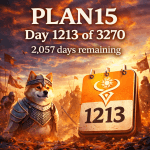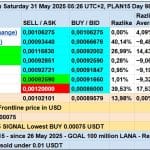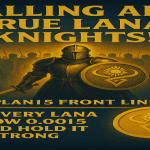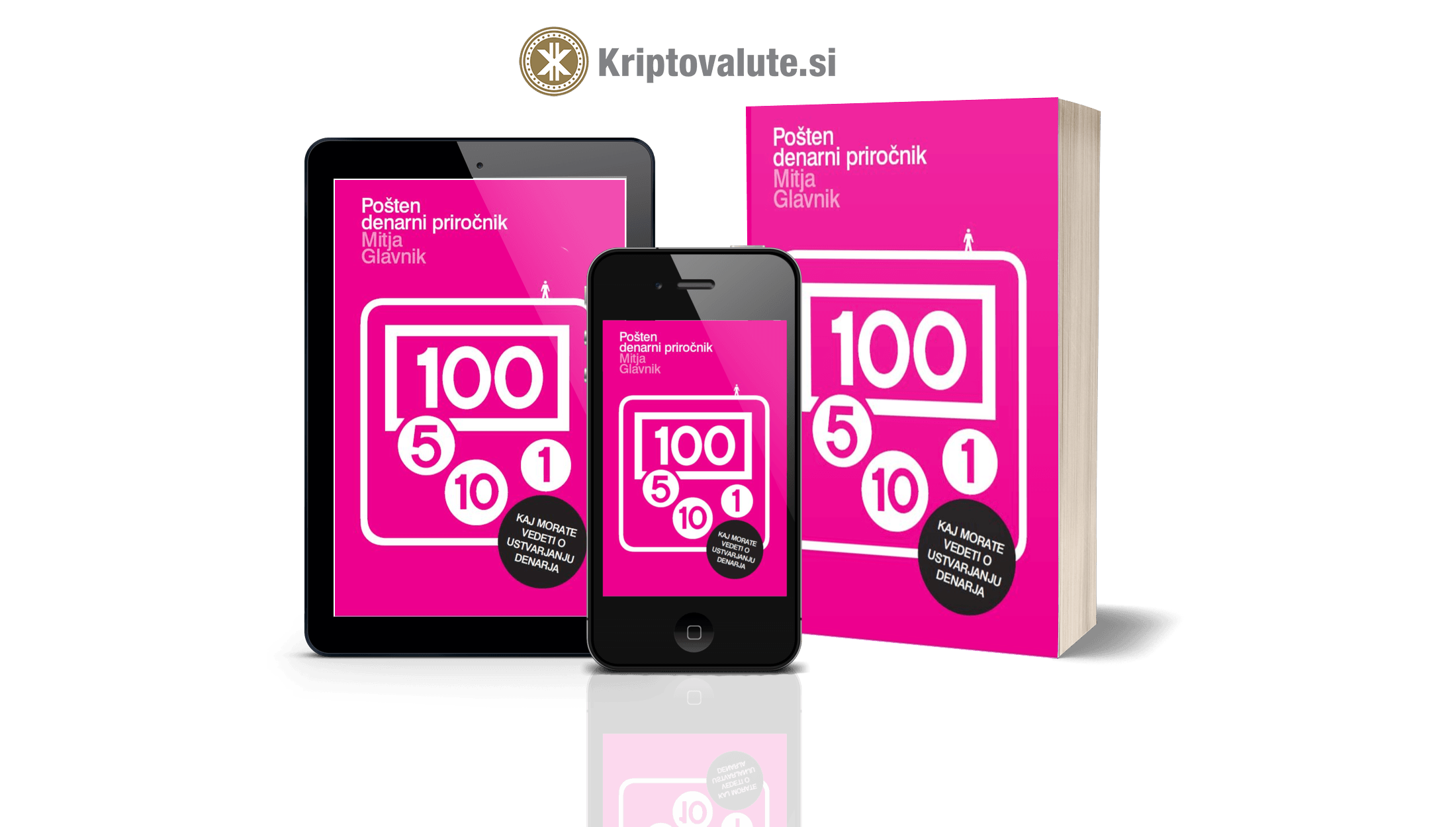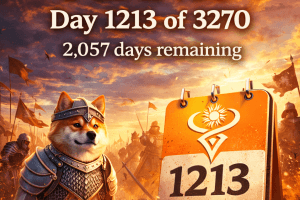“As a proud co-founder of the new Onboard ReKreator community, we will combine NI (Natural Intelligence; Humans) with AI and DLT technology. Follow us to stay up to date with our strong collaborations with Cryptocurrency, OnBoard, ReKreator, HudLook, BlackBox, LISA, BlackOlymp and TOWA , while we are building a new type of community,” says dr. Walter Kurz, who, in addition to the practical implementation of his own business AI applications, focuses on basic AI-oriented business research. He develops core business concepts and supervises theses related to artificial intelligence in MBA, DBA and PhD programs.
We managed to invite one of the twelve chosen by Forbes magazine to an interview in which he reveals the usefulness of his “AI Readiness Index” model.
Dr. Kurz, can you tell us about your professional background and how you became involved in artificial intelligence (AI)?
I’ve been running my own businesses since the early 1990s and sold my first website in 1995. Technology has changed a lot since then, and the recent advancements in AI are really transformative. As an entrepreneur, I often discuss with my team and partners how to incorporate AI into our business models. In my role as an AI business consultant, I use the Business Model Canvas to pinpoint where AI can be integrated, streamline processes, and create new revenue opportunities. For the past three years, as an associate professor at a business college, I’ve been supervising theses and papers at the master’s and doctorate levels. I also collaborate with my research colleagues on AI-focused business research and we’re currently working on a new (scientific) business book about AI in intelligent companies.
What motivated you to develop the “AI Readiness Index,” and how can businesses benefit from this tool?
Most companies still lack a clear understanding of how to fully integrate AI into their operations. We’re not just talking about using ChatGPT or similar tools for occasional tasks. We’re talking about embedding AI throughout all necessary processes within the stakeholder model. From my experience, there are numerous factors to consider, with one of the most crucial being the people involved.
Our AI Readiness Index is designed to gather the expertise and opinions of everyone in an organization, providing a snapshot of the current situation and perspectives regarding AI integration. We pay particular attention to critical viewpoints, personal concerns, and fears. Effective AI integration requires strong Change Management, and often, when Change Management projects fail, it’s due to resistance from people. The AI Readiness Index helps identify where your organization stands and guides you on the next steps needed for successful integration.
In your opinion, what are the most significant challenges companies face when implementing AI in their business models?
Right now, the main issues include fears and resistance from people involved, a lack of knowledge and understanding of AI technology, and uncertainty about where and how to integrate different types of AI into existing processes.
How do you view the integration of AI with blockchain technology, and what potential do you see in this synergy?
Distributed Ledger Technology (DLT), with blockchain as its most prominent and best-known representative, mostly in the area of FinTech, has huge potential to become an efficient and reliable partner of AI. Unfortunately, DLT flies under the radar for most people, and many have no idea about the great potential of this technology. Timestamp and verification services, or storage for AI-needed data in the form of smart contract-based decentralized fully automated marketplaces, where participants pay per smart contract and tokens, are examples of its applications.
If we combine open-source AI with decentralized networks and open them for communities, merging FinTech and the functional aspects of DLT, we could build very effective and transparent public networks. We could also use AI to hunt down and eliminate scammers on the different chains by looking for patterns and greylisting or blacklisting their wallets, or at least exposing them accordingly. AI is great at finding patterns and could help us make public networks much safer and faster.
Can you provide examples of successful AI applications within the blockchain industry?
In the blockchain space, AI is making a real impact, from fraud detection with companies like CipherTrace, which uses AI to catch suspicious transactions, to predictive trading models from Numerai that crowdsource insights using machine learning. Platforms like SingularityNET are pushing boundaries by combining decentralized networks with AI, creating new ways to share and monetize AI services. Meanwhile, tools like OpenZeppelin are using AI to audit smart contracts, ensuring they’re secure and reliable.
How do you evaluate the current readiness of the blockchain sector for adopting AI technologies?
DLT and blockchain companies, communities, and market participants are very tech-oriented, so AI will be integrated very quickly. AI can optimize financial outcomes and automate processes like community building (up to a specific degree). In other words, compared to other areas of life, the blockchain community is far ahead of the rest of the world.
Which particular issues within the blockchain industry do you believe AI can effectively address?
It can enhance security by detecting fraud and suspicious activities across transactions. AI can also streamline the auditing of smart contracts, identifying vulnerabilities and ensuring code integrity. Additionally, it can improve market predictions and trading strategies, reducing risks and optimizing financial outcomes. Finally, AI can help manage and analyze large volumes of data, making decentralized systems more efficient and effective.
How crucial are research and development efforts in pushing the boundaries of AI and blockchain technologies?
Research and development are absolutely crucial in advancing AI and blockchain technologies. They drive innovation by uncovering new applications, improving existing systems, and addressing current limitations. R&D efforts help refine algorithms, enhance security measures, and create more efficient integrations between AI and blockchain. Without continuous research and development, we wouldn’t see the groundbreaking solutions and improvements that push these technologies forward and expand their capabilities.
What strategies would you recommend for businesses aiming to implement AI in their blockchain projects?
To implement AI in blockchain projects, start by identifying clear objectives for what you want to achieve with AI, such as improving security or optimizing processes. Next, assess your current technology and team capabilities to understand what resources you have and what gaps need addressing. Choose AI tools and platforms that align with your goals and can integrate smoothly with your blockchain infrastructure. Consider exploring open-source AI models and testing different types and their performances to find the best fit for your needs. Develop and test AI solutions in a controlled environment to ensure they work effectively before full-scale deployment. Finally, continuously monitor the performance of AI within your blockchain project and be prepared to adapt based on feedback and changing needs.
In what ways can AI enhance the security and reliability of blockchain networks?
Besides the already mentioned techniques, it could be possible in the future that, as a user, my personal AI assistant could instantly check all the needed background information on a token or project. It would provide an assessment regarding security, scam threats, and usage (such as decentralized exchanges or centralized exchanges), as well as potential predictions. This real-time analysis would enhance the security and reliability of blockchain networks by enabling users to make informed decisions quickly and accurately.
What essential skills and knowledge should businesses acquire to successfully deploy AI technologies?
First, they should develop a deep understanding of AI algorithms and data science principles—not just the basics, but how to tailor these concepts to their specific needs. It's important to have expertise in integrating AI with existing systems and workflows, ensuring seamless operation and maximizing impact. Businesses should cultivate strong data management skills, as effective AI relies on high-quality, well-organized data. Having the ability to interpret AI outputs and translate them into actionable business strategies is also a critical key factor. Supporting a culture of continuous learning and adaptability will help teams stay ahead of rapid technological advancements and evolving AI capabilities.
How significant is the shift in company culture and employee mindset when introducing AI into business operations?
Since AI represents a fundamentally new type of technology, even experienced ICT experts need to rethink and grasp the new approaches it introduces. The impact of AI is substantial and often not fully understood, requiring a shift in perspective to navigate its complexities and opportunities effectively.
How do you see the future evolution of AI and its impact on the blockchain industry over the next decade?
These technologies will become best buddies.
What advice would you give to young researchers and entrepreneurs who aspire to contribute to the fields of AI and blockchain?
Researchers: There are huge research gaps, and the field for new scientific insights is wide open. Either follow your interest or find a gap that you can monetize later. Entrepreneurs: Try to solve a problem better and faster than your competitors. The rest depends on the context. Consider a merger of AIaaS and BaaS. If you have good ideas, get in touch with me.
As a proud Co-Founder of the new Onboard ReKreator Community, we will combine NI (natural intelligence; humans) with AI and DLT technology. Follow us to stay up to date on our powerful collaboration with Kriptovalute, OnBoard, ReKreator, HudLook, BlackBox, LISA, BlackOlymp, and TOWA as we build a new type of community.
With some help from AI, interview was prepared by Mitja Glavnik.
Odprite KRIPTOMAT in dobite 20 EUR v Bitcoinu
If someone whishes to contact dr. Kurz please feel fre to use contacts below:
For discussions, feedback, consulting or new startup ideas, feel free to reach out to me.
Connect on LinkedIn: www.linkedin.com/in/drwalterkurz
AI Readiness Index: https://wehave.info/aiready2024.html




